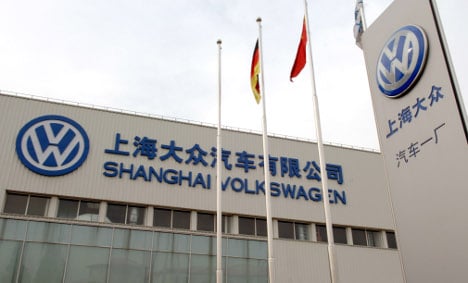Citing internal and confidential documents, the latest edition of car industry weekly Automobilwoche reported that “the number of VW employees will rise from 250,000 to 290,000 by 2018,” including 35,000 new posts in China.
Most of the new jobs – 21,000 posts – will be created in the production sector, including 400 for managers and 5,000 for engineers.
Some 4,700 new jobs will open up in the commercial and customer service divisions.
The new posts will come on top of those to be created to replace the 60,000 VW employees due to retire by 2018, Automobilwoche said.
Last month, a report said VW was considering launching a new car brand specifically designed for the booming Chinese market.
“The Chinese government has been promoting Chinese brands for some time now. In this context, joint ventures with foreign companies – such as FAW Volkswagen or SAIC Volkswagen for us – are encouraged to make a local marque,” an official with unit Volkswagen China said in a Handelsblatt report.
VW is now in talks with its Chinese partners, looking at the market for models below €8,000 ($11,000), the report said, adding that the company’s supervisory board was expected to approve the project.
VW sales in China jumped nearly 36 percent over a one-year period.
AFP/mry



 Please whitelist us to continue reading.
Please whitelist us to continue reading.
Member comments